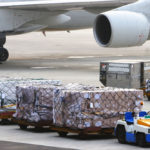Group travel in the tourism sector can be a rewarding experience, but it also comes with its own set of challenges and considerations. From coordinating itineraries to managing budgets and ensuring everyone has a memorable experience, planning group travel requires careful attention to detail and effective communication. Whether you are organizing a group tour for a school trip, corporate retreat, or family vacation, here are some essential tips to help you plan and execute a successful group travel experience:
1. Establish Clear Objectives and Goals
Before diving into the logistics of planning group travel, it is essential to establish clear objectives and goals for the trip. Determine the purpose of the travel, whether it is educational, team-building, leisure, or a combination of these aspects. Understanding the goals of the trip will help guide your planning process and ensure that every aspect of the itinerary aligns with the group’s expectations and requirements.
2. Designate a Group Leader or Coordinator
Assigning a dedicated group leader or coordinator is crucial for efficient communication and organization throughout the planning and execution of the group travel experience. The group leader should serve as the central point of contact for all participants, oversee logistics, handle reservations, and address any issues or concerns that may arise during the trip. Having a designated leader helps streamline decision-making and ensures a smooth flow of activities throughout the journey.
3. Plan Ahead and Create a Detailed Itinerary
Effective planning is key to the success of group travel. Create a detailed itinerary that outlines the travel schedule, including transportation arrangements, accommodation details, sightseeing activities, meal plans, and free time for leisure or exploration. Ensure that the itinerary is shared with all participants well in advance so that everyone is informed of the trip’s schedule and can make any necessary preparations.
4. Consider Group Size and Budget Constraints
When planning group travel, consider the size of the group and how it may impact logistics, accommodations, transportation, and overall experience. Be mindful of budget constraints and seek cost-effective options for accommodations, meals, and activities without compromising on quality or safety. Negotiate group rates with vendors and providers to secure discounts and savings for the entire group.
5. Communicate Effectively with Participants
Maintaining open and transparent communication with participants is essential for a successful group travel experience. Keep everyone informed of important details, changes to the itinerary, packing lists, and any other relevant information leading up to the trip. Establish clear channels of communication, such as email, messaging apps, or a dedicated group travel portal, to ensure that participants can easily reach out with questions or concerns.
6. Prepare for Contingencies and Emergencies
Anticipate potential challenges or emergencies that may arise during the trip and have contingency plans in place to address them proactively. Consider factors such as weather disruptions, flight delays, medical emergencies, or unexpected changes in the itinerary. Have access to emergency contacts, travel insurance information, and local resources to manage unforeseen situations and ensure the safety and well-being of all participants.
Planning group travel in the tourism sector requires careful preparation, effective communication, and attention to detail to create a memorable and enjoyable experience for all participants. By following these essential tips and incorporating best practices into your planning process, you can streamline logistics, enhance coordination, and deliver a successful group travel experience that meets the needs and expectations of your participants. Remember to stay organized, flexible, and responsive to the unique preferences and requirements of your group to ensure a smooth and unforgettable journey in the world of group tourism.










